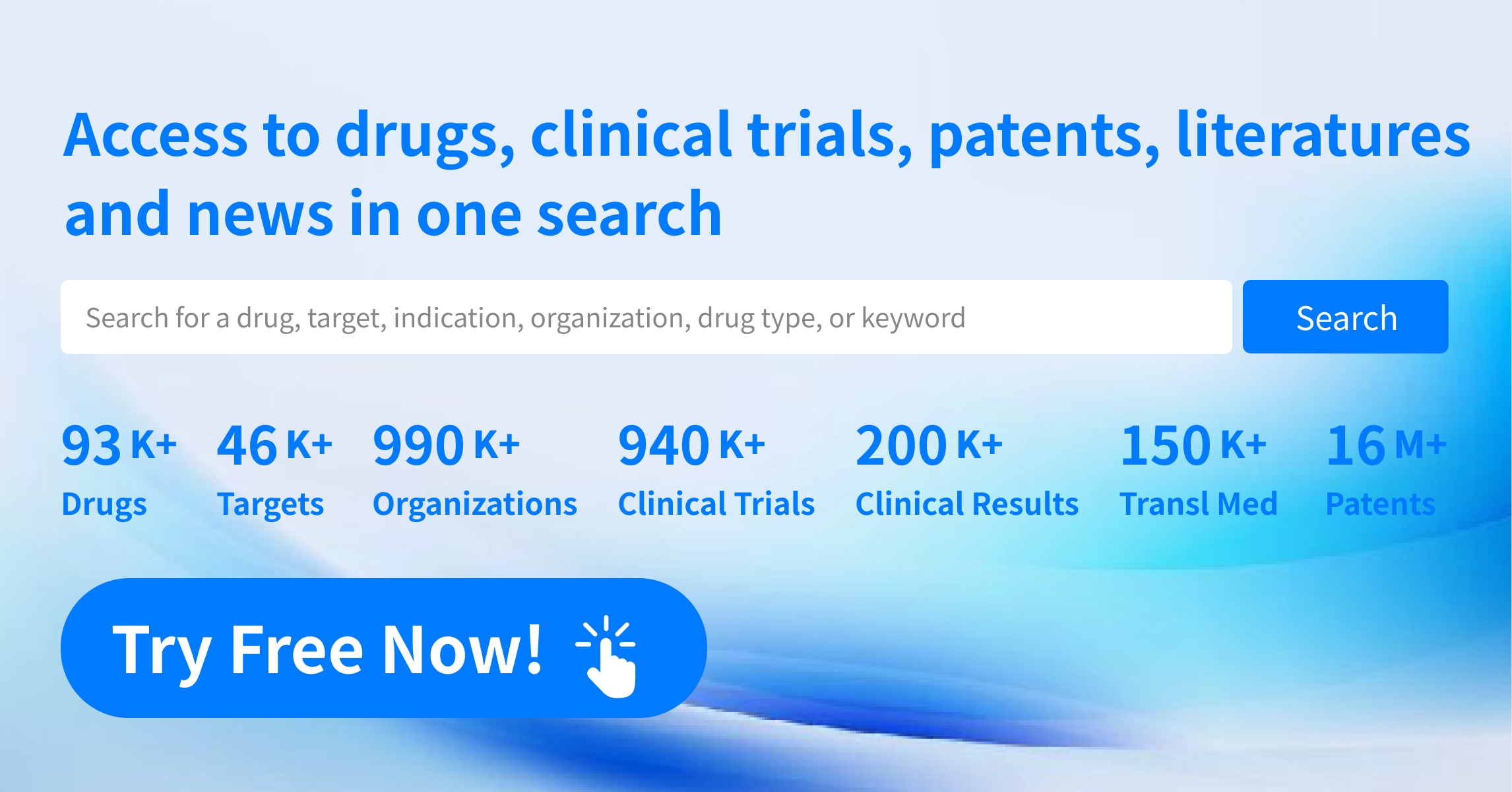Pharma Frontiers: Daily Digest of Global Pharmaceutical News – Sep 5
1.Merck's PD-1 Antibody Submits New Indication for Approval in China
On September 4, the CDE announced that Merck's (MSD) anti-PD-1 antibody Pembrolizumab submitted a new indication for marketing approval in China and was accepted for review. Prior to this, Pembrolizumab had already been approved for 14 indications in China, covering melanoma, non-small cell lung cancer, squamous cell carcinoma of the head and neck, colorectal cancer, esophageal cancer, liver cancer, biliary tract cancer, and gastric cancer. In addition to the new indication under review, Pembrolizumab has at least four other indication applications currently in the review process. On the same day, Pembrolizumab also received a new regulatory approval in the European Union, where the European Commission (EC) approved the drug in combination with Astellas and Pfizer's Nectin-4-targeted antibody-drug conjugate (ADC) Padcev as a first-line treatment for adult patients with unresectable or metastatic urothelial carcinoma.
2.Innovent Biologics’ IBI363 Granted Fast Track Designation by FDA for Melanoma Treatment
On September 4, Innovent Biologics announced that its PD-1/IL-2α-bias bispecific antibody fusion protein IBI363 was granted Fast Track Designation (FTD) by the U.S. FDA. The proposed indication is for the treatment of locally advanced or metastatic melanoma (excluding uveal melanoma) that has progressed after at least one prior line of systemic therapy containing PD-1/L1 checkpoint inhibitors. Innovent is currently conducting Phase 1/2 clinical trials in China, the U.S., and Australia to explore the efficacy and safety of IBI363 across various advanced malignancies.
IBI363, developed by Innovent Biologics, is the world's first PD-1/IL-2 bispecific fusion protein that simultaneously blocks the PD-1/PD-L1 pathway and activates the IL-2 pathway. The IL-2 arm of IBI363 has been engineered to retain affinity for IL-2Rα while reducing binding to IL-2Rβ and IL-2Rγ, thereby lowering toxicity. The PD-1 binding arm can block PD-1 and deliver IL-2 selectively. Since newly activated tumor-specific T cells express both PD-1 and IL-2α, this strategy allows for more precise and effective targeting and activation of this T-cell subset. At the ESMO plenary session on June 14, 2024, IBI363 reported promising efficacy signals in melanoma patients who had previously received immunotherapy.
3.Roche Announces Phase II Results of BTK Inhibitor for Multiple Sclerosis
On September 4, Roche announced the latest results from the open-label extension (OLE) of the Phase II FENopta study for its BTK inhibitor, Fenebrutinib. The results showed that patients with relapsing multiple sclerosis (RMS) who received up to one year of treatment with Fenebrutinib maintained very low levels of disease activity, and their disability status did not progress. Roche plans to present the latest data from the FENopta-OLE study at the 40th Congress of the European Committee for Treatment and Research in Multiple Sclerosis (ECTRIMS). Fenebrutinib is an oral, reversible, non-covalent BTK inhibitor that blocks the function of BTK. Preclinical data show that Fenebrutinib has strong activity and high selectivity, with 130 times greater selectivity for BTK over other kinases. Fenebrutinib is currently the only reversible inhibitor in Phase III trials for multiple sclerosis. FENopta is a 12-week global, randomized, double-blind, placebo-controlled Phase II clinical study evaluating the efficacy, safety, and pharmacokinetics of Fenebrutinib in 109 RMS patients aged 18-55.
4.Amgen's OX40 Monoclonal Antibody Approved for New Indication in China to Treat Prurigo Nodularis
On September 4, the CDE website indicated that Amgen’s new drug application for AMG 451 has been approved in China, with the indication for prurigo nodularis. According to public information, AMG 451 (rocatinlimab) is a fully human anti-OX40 monoclonal antibody under development. Amgen obtained the rights to co-develop and commercialize this product through a partnership with Kyowa Hakko Kirin worth up to $1.25 billion. OX40 (also known as CD134) is a key T-cell co-stimulatory molecule that enhances immune activity by promoting the proliferation and survival of effector T-cells while inhibiting the activity and proliferation of regulatory T-cells (Tregs). The development of antibodies targeting OX40 holds promise for treating a variety of immune-related diseases. Rocatinlimab specifically targets OX40 as a fully human monoclonal antibody. According to the Chinese Clinical Trial Registry and Information Platform, Amgen has already initiated multiple clinical studies for AMG 451 in China, including indications for atopic dermatitis and asthma.
5.Dyne Therapeutics Releases Latest Clinical Data on Oligonucleotide Conjugate Therapy
On September 4, Dyne Therapeutics announced new clinical data from its ongoing Phase 1/2 DELIVER trial. This trial evaluates the efficacy and safety of its investigational antibody oligonucleotide conjugate therapy, DYNE-251, in patients with Duchenne muscular dystrophy (DMD) amenable to exon 51 skipping therapy. According to the press release, patients treated with DYNE-251 across multiple cohorts exhibited unprecedented levels of dystrophin expression, and improvements in clinical function were observed. Based on these positive results and discussions with regulatory agencies, Dyne is preparing to initiate the registrational cohort of the DELIVER trial. DELIVER is a trial comprising a 24-week multiple ascending dose (MAD) randomized placebo-controlled period, a 24-week open-label extension, and a 96-week long-term extension. The trial enrolls patients aged 4 to 16 with DMD amenable to exon 51 skipping therapy. The primary endpoints are safety, tolerability, and changes in dystrophin levels relative to baseline. DYNE-251-treated patients showed significantly elevated dystrophin expression. Patients receiving the 20 mg/kg dose exhibited an average absolute dystrophin expression of 3.71% of normal levels (uncorrected for muscle content), more than ten times higher than the 0.3% reported in clinical trials with standard weekly treatments.
6.Pfizer/Valneva Announce Latest Results for Lyme Disease Vaccine Candidate
On September 4, Valneva and Pfizer announced positive immunogenicity and safety data from the Phase 2 clinical trial of their jointly developed Lyme disease vaccine candidate, VLA15. The data revealed that participants’ immune responses and safety profiles one month after receiving the second booster dose were similar to those reported after the first booster dose. After the second booster, a high percentage of participants experienced seroconversion, with seroconversion rates (SCR) exceeding 90% for outer surface protein A (OspA) serotypes across all age groups. One month after both the first and second booster doses (i.e., at months 19 and 31), participants' geometric mean antibody titers were comparable and maintained at high levels. According to the press release, there is currently no Lyme disease vaccine approved for human use by regulatory authorities, and VLA15 is the most advanced Lyme disease vaccine candidate in clinical development, with two Phase 3 trials currently underway.
7.EpimAb Biotherapeutics and Vignette Bio Reach Licensing Agreement for BCMA/CD3 Bispecific Antibody
On September 4, EpimAb Biotherapeutics announced a licensing agreement with Vignette Bio regarding the BCMA/CD3 bispecific antibody EMB-06. Under this agreement, Vignette Bio will obtain exclusive rights to develop and commercialize EMB-06 outside of Greater China, including mainland China, Hong Kong, Macau, and Taiwan. According to the agreement, EpimAb will receive an upfront payment of $60 million in cash and Vignette equity. Additionally, EpimAb is entitled to receive up to $575 million in development, regulatory, and commercialization milestone payments, along with royalties based on net sales. EMB-06 is the first T-cell engager (TCE) molecule developed under EpimAb’s T-cell engaging platform and is currently undergoing Phase I/II clinical trials in China and Australia. This product leverages EpimAb’s proprietary FIT-Ig bispecific antibody platform, its CD3 binding domain library, and its in-house expertise in drug discovery and antibody engineering.
8.Arsenal Bio Completes $325 Million Series C Financing
On September 4, Arsenal Biosciences announced the completion of a $325 million Series C financing round. New investors include ARCH Venture Partners, Milky Way Investments Group, Regeneron, Nventures, and Luma Group, while existing investors such as SoftBank Vision Fund 2, Bristol-Myers Squibb (BMS), Westlake Village BioPartners, Parker Institute for Cancer Immunotherapy (PICI), Kleiner Perkins, Byers Capital, and Hitachi Ventures also participated. Founded in 2019, Arsenal Biosciences has now raised a total of $630 million. The company focuses on developing CAR-T therapies for solid tumors, with its lead program, AB-1015, aimed at treating ovarian cancer and currently in clinical trials.
How to obtain the latest research advancements in the field of biopharmaceuticals?
In the Synapse database, you can keep abreast of the latest research and development advances in drugs, targets, indications, organizations, etc., anywhere and anytime, on a daily or weekly basis. Click on the image below to embark on a brand new journey of drug discovery!




